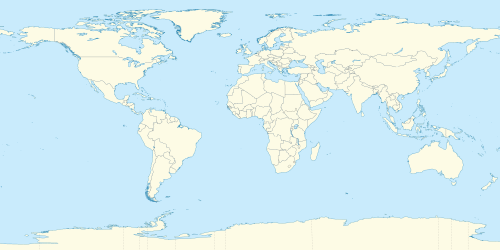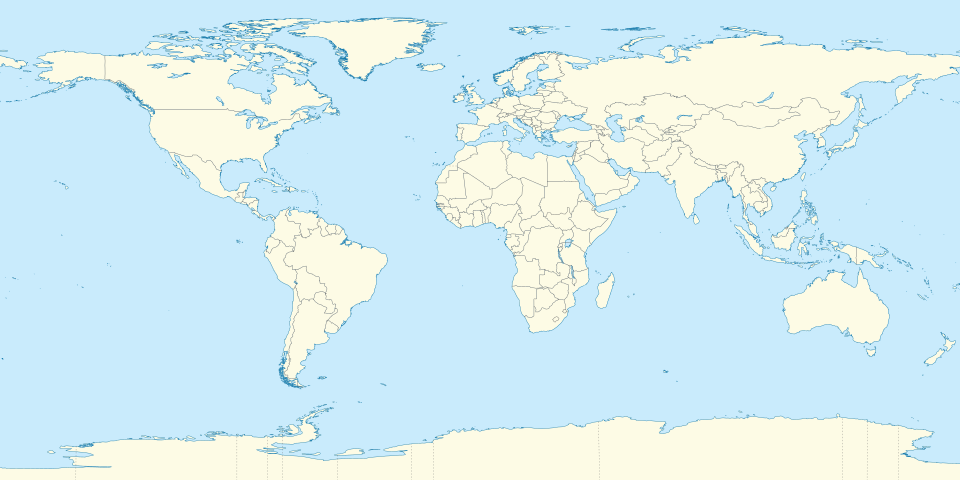Top Qs
Timeline
Chat
Perspective
List of largest recorded music markets
From Wikipedia, the free encyclopedia
Remove ads
Remove ads
The world's largest recorded music markets are listed annually by the International Federation of the Phonographic Industry (IFPI). The ranking is based on retail value (rather than units) each market generates respectively per year; retail value generated by each market varies from year to year. As all financial data is given in US dollars, annual rates of change for all countries other than the United States are heavily influenced by exchange rate fluctuations, as well as by actual changes in revenue in local currency terms.
The information presented in this page only accounts for revenue generated from the recorded music industry (recorded music and auxiliary revenues generated by these recordings), and is not reflective of the entirety of the music industry, including sectors such as publishing, live music, etc.
The United States has remained the biggest market for recorded music in IFPI history, except in 2010 when Japan topped the list. The largest Asian music market, Japan has always stayed within the top two. The other largest music markets by region include the United Kingdom in Europe and Brazil in Latin America. Meanwhile, United States, Japan, United Kingdom, France, Germany, and Canada have consistently appeared among the top ten music markets throughout IFPI history. Other countries historically having appeared in the top ten include Italy, Netherlands, South Korea, Spain, China, Russia, Australia, and Mexico.
Remove ads
IFPI annual data
Summarize
Perspective
2024
Source: Figures within the table are based on IFPI Global Music Report 2025.[1]
2023
Source: Figures within the table are based on IFPI Global Music Report 2024.[3]
2022
Source: Figures within the table are based on IFPI Global Music Report 2023.[10]
2021
Source: Figures within the table are based on IFPI Global Music Report 2022.[11]
2020
Source: Figures within the table are based on IFPI Global Music Report 2021.[12]
2019
Source: Figures within the table are based on IFPI Global music report 2020.[13][14]
2018
Source: Figures within the table are based on IFPI Global music report 2019.[15]
2017
Source: Figures within the table are based on IFPI Global music report 2018.[16]
2016
Source: Figures within the table are based on IFPI Grobal music report 2017.[17]
2015
Source: Figures within the table are based on IFPI Grobal music report 2016.[18]
2014
Source: Figures within the table are based on IFPI 2014 annual report.[19]
2013
Source: Figures within the table are based on IFPI 2013 annual report.[20]
2012
Source: Figures within the table are based on IFPI 2012 annual report.[21]
2011
Source: Figures within the table are based on IFPI 2011 annual report.[21]
2010
Source: Figures within the table are based on IFPI 2010 annual report.[22] Total units figures are derived by addition of figures reported by referenced sources.
2009
Source: Figures within the table are based on IFPI 2009 annual report.[23] Total units figures are derived by addition of figures reported by referenced sources.
2008
Source: Figures within the table are based on IFPI 2008 annual report, except where noted below.[24] Total units figures are derived by addition of figures reported by referenced sources.
Notes^
2007
Source: Figures within the table are based on IFPI 2007 annual report, except where noted below.[27] Total units figures are derived by addition of figures reported by referenced sources.
Notes^
2006
Source: Figures within the table are based on IFPI 2006 annual report, except where noted below.[28] Total units figures are derived by addition of figures reported by referenced sources.
Notes^
- ^ Venezuela's, Central America's population figures are based on the IFPI 2004 report due to not having the information on IFPI 2006 report.[29]
- ^ Slovakia's population figure is based on the CIA's 2010 estimation due to not having the information on the IFPI 2008 report.[30]
- ^ Uruguay's, Ecuador's and Peru's population figures are based on IFPI 2008 report due to not having the information on IFPI 2006 report.[24]
2005
Source: Figures within the table are based on IFPI 2005 annual report, except where noted below.[31] Total units figures are derived by addition of figures reported by referenced sources.
Notes^
- ^ Ukraine's, Colombia's, Venezuela's, Central America's population figures are based on IFPI 2004 annual report due to the missing information on the IFPI 2005 report.[29]
- ^ Slovakia's population figure is based on the CIA's 2010 estimation due to not having the information on the IFPI 2005 report.[30]
- ^ Paraguay's population figure is based on the CIA's 2010 estimation due to not having the information on the IFPI 2005 report.[32]
- ^ Uruguay's, Ecuador's population figures are based on IFPI 2008 annual report due to the missing information on the IFPI 2005 report.[24]
- ^ Egypt's population figure is based on the CIA's 2010 estimation due to not having the information on the IFPI 2005 report.[33]
2004
Source: Figures within the table are based on IFPI 2004 annual report, except where noted below.[29] Total units figures are derived by addition of figures reported by referenced sources.
Notes^
- ^ Note that the figures in the column of Total units for some markets may be higher than what the combined total from the columns of Singles, CDs, DVD might represent. This is due to the missing sales of Digital Downloads, Cassette Albums and VHS Cassettes which are not included on IFPI 2004 report provided by RIAJ.
- ^ Note that the figures posted in the column of Total units for some markets may be lower than what the combined total from the columns of Singles, CDs, DVDs might represent. This is because the columns of Singles, CDs, DVDs represent shipped units, whereas the column of Total units represent sold units.
2003
Source: Figures within the table are based on IFPI 2004 annual report, except where noted below.[34] Total units figures are derived by addition of figures reported by referenced sources.
2002
Source: Figures within the table are based on IFPI 2004 annual report, except where noted below.[35] Total units figures are derived by addition of figures reported by referenced sources.
1998
Source: Figures within the table are based on the IFPI annual report and reported by Billboard.[36]
1997
Source: Figures within the table are based on the IFPI annual report and reported by Billboard.[37]
1996
Source: Figures within the table are based on the IFPI annual report and reported by Billboard.[38]
1991
Source: Figures within the table are based on the IFPI annual report and reported by Billboard.[39]
Remove ads
Statistics
Remove ads
See also
References
Wikiwand - on
Seamless Wikipedia browsing. On steroids.
Remove ads

